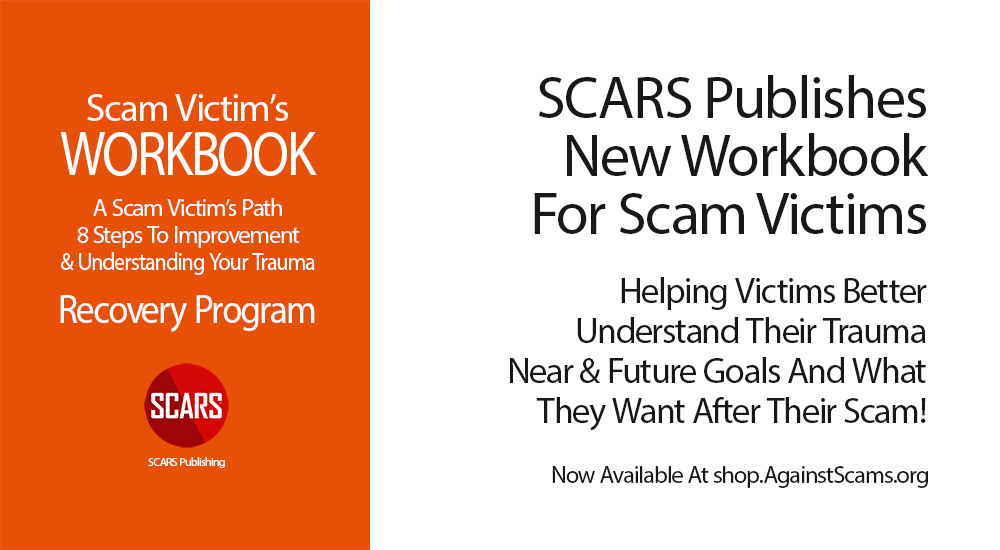SCARS Wrote The Book On Scam Victim Recovery!
In addition to the massive information published here on RomanceScamsNOW.com – free for all scam victims, families, and friends – SCARS also published guides and useful books available on our SCARS Company Store at shop.AgainstScams.org
100% of all profit goes to help SCARS help more scam victims worldwide. Your generous purchase allows us to maintain our scam avoidance, support, and recovery services. Please help SCARS and stand proud.
New Book From SCARS: Workbook For Trauma & Goals Self Assessment – 8 Steps for Improvement
A Part of the SCARS Scam Victims’ Recovery Program
Supporting Scam Victim Recovery!
Our Goal Is To Expand Understanding And Support For Scam Victims
This book should be purchased by Scam Victims to help them better understand the trauma that they have experienced now and in the past. It will help each victim better understand their present and their past, and their goals as they go through recovery.
This was created by SCARS – the world leader in assisting scam victims, by author Tim McGuinness Ph.D., the Managing Director of Society of Citizens Against Relationship Scams Inc – a nonprofit crime victims’ assistance and crime prevention organization.
DESIGNED FOR SCAM VICTIMS TO SELF-ASSESS THEIR TRAUMA!
Each person is different and it is important to understand how relationship scams work and why people are vulnerable to being scammed. To understand how they were lured in, then groomed and manipulated. This understanding is essential in helping them through the process of ending the scam and then on to recovery. That information is available here on RomanceScamsNOW.com, but it is often useful to have additional tools that you can have in your hands.
This New Workbook will provide the information and structure necessary for scam victims to better understand themselves and see their progress. We recommend that this workbook be used together with our GREEN BOOK Self-Help Recovery Guide and our BLUE BOOK Scam Victims’ Journal.
SCARS provides a large library of educational articles on all the topics of recovery from scams and the psychology of scams to help victims better understand these concepts. But, we also publish several unique books written by the global experts in scam victim recovery.
PLEASE NOTE: If you are the victim of a scam please see also our SCARS GREEN BOOK – Self Help Guide for Scam Victim Recovery




Please Leave A Comment - Tell Us What You Think About This!